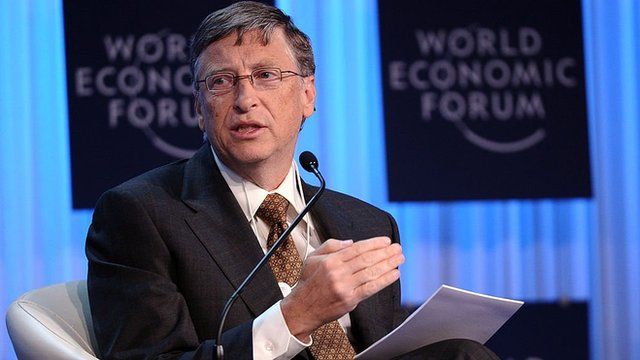
Bill Gates, co-founder of Microsoft Corp. and the second-richest person in the world, said there’s a danger that U.S. President Donald Trump’s “America First” approach could damage the U.S.’s influence in Africa in the long term.
Other countries like China are continuing to push into the African continent, and the U.S. should not pull back, Gates said in an interview with Micklethwait, Bloomberg News Editor-in-Chief John in Davos, Switzerland. The Bill & Melinda Gates Foundation has spent about $12 billion on global health projects in the last five years, focusing on diseases like malaria and tuberculosis.
In “the balance of hard power versus soft power, the U.S. uniquely has a ratio emphasizing hard power and I’d hate to see it go even further,” Gates said. “You don’t want to give up your soft power tools.”
Trump has questioned the value of funding for developing countries, sometimes saying other nations benefit from the U.S. without reciprocating. The president has proposed cutting funding for malaria, though Gates said he’s optimistic that won’t happen.
Gates is stepping up funding for malaria in Central America, joining with the Carlos Slim Foundation and the Inter-American Development Bank to spend $83.6 million over the next five years fighting the disease in that region. Still, the core of the organizations’ effort is in Africa, which is at the heart of the battle.
The U.S. should concentrate more on helping the world’s poor, Gates said.
“That’s the area where I’ve chosen to take the wealth that was created by Microsoft,” Gates said. “I understand that money can be very well spent. I’m in there saying let’s keep up the good work.”
After years of declines, the mosquito-borne disease is becoming more stubborn in some countries as different strains of the disease develop immunity against certain drugs. Private companies should keep investing to improve the tools used to suppress malaria, Gates said, even if it’s not a profitable enterprise for them.
“The community needs to get its act together,” he said.








